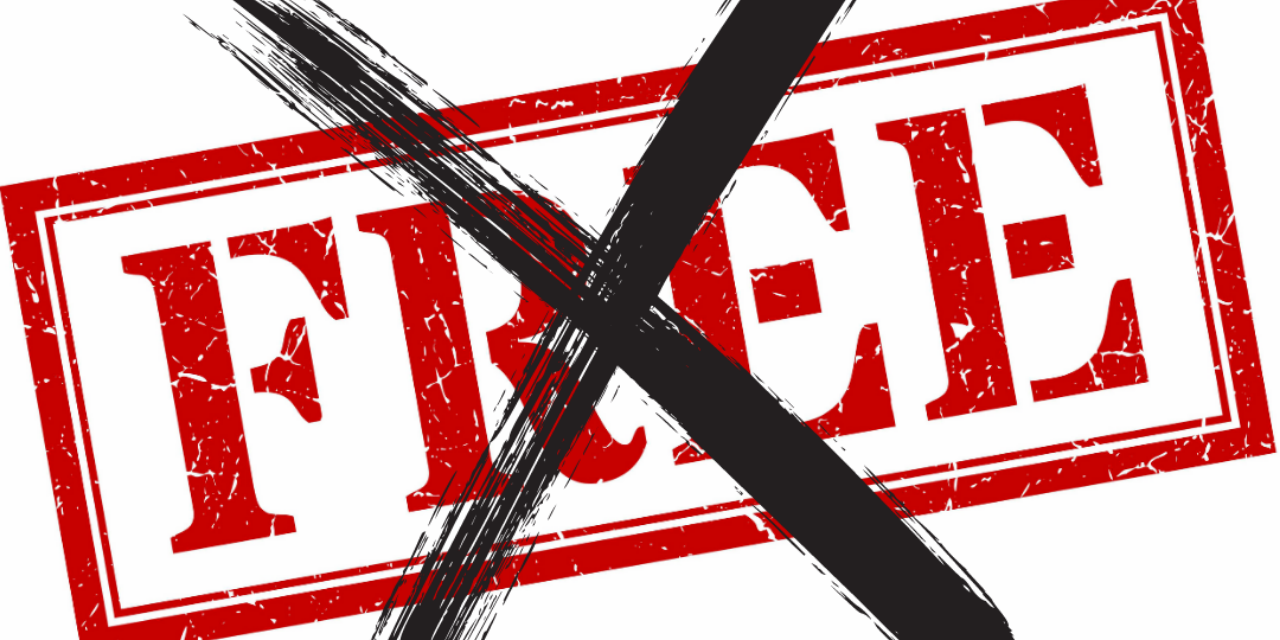In the world of advertising and marketing, the word “free” has a way of drawing consumers like moths to bright flames.
“If it’s free, it’s for me,” is a common, humorous adage – and for good reason given the assumption customers will receive something for nothing and with no risk or expectations attached.
Lately, though, the federal government has been taking a page out of the advertiser’s playbook, heralding all kinds of “freebies” to all of us:
“Free” stimulus money.
“Free” child tax credit.
“Free” vaccines.
“Free” COVID-19 test kits.
And now, just today, we learn the government will be mailing out 400 million “free” N95 masks to help slow or curtail the spread of the virus. Masks will be available for pickup at pharmacies and other predetermined locations.
We’ll leave the efficacy and wisdom of mask wearing to others, but this much is certain and indisputable:
In reality, there is no such thing as “free” when it comes to the government. They have no money to give or funds to purchase anything. Vaccines, tests and kits given away are paid for by you and me. And if we don’t pay for them now, you can be sure we’re going to pay for them later – with interest.
The perpetuation of the “free” mantra is a psychologically manipulative technique designed to ingratiate and foster goodwill. After all, who doesn’t like the rich uncle who writes large checks? It might be considered generous charity when a friend or relative provides it – but beware the subtle, coercive and increasingly common practice of federal, state and local entities dolling out dollars and other items.
Monthly child tax credit payments replaced and expanded the yearly benefit. In truth, the government was simply giving back money they had previously taken. It brings to mind the wry definition of a consultant – someone who borrows your watch and then gets paid to tell you what time it is.
As for the expansion and explosion of “free” – consider “free” breakfasts and lunches in public schools. Conceived to help impoverished, malnourished and disadvantaged children, it has grown by leaps and bounds over the years and is often utilized by students whose parents could easily afford a peanut butter and jelly sandwich.
According to the “National Student Lunch Program” the U.S. Congress spends $13.8 billion each year to cover the cost of the 10.8 billion lunches served annually in the United States.
One of our sons, whom we homeschool, attends a special public school-sponsored program once a week for students with dyslexia. On his first day, he ate his breakfast at home, and my wife packed him a lunch. Upon arriving home later in the afternoon, he lamented he was the only student not partaking in the “free” breakfast and lunch program. The program is not in a poor area, nor does it host many disadvantaged students. The teacher told the students, “You might as well eat the meals – they’re free.” Peer pressure compels participation.
It was the French philosopher Alexis de Tocqueville who observed, “The end of freedom comes when the party in power learns it can perpetuate itself through taxation.”
Sadly, that’s what far too many elected representatives have been doing for far too long.
The apostle Paul wrote to the church at Rome, “But by the free gift of God’s grace all are put right with Him through Christ Jesus, who sets them free” (Romans 3:24).
As Christians, that’s the one truly free gift this side of eternity, provided at no cost to every believer.
Photo from Shutterstock.






